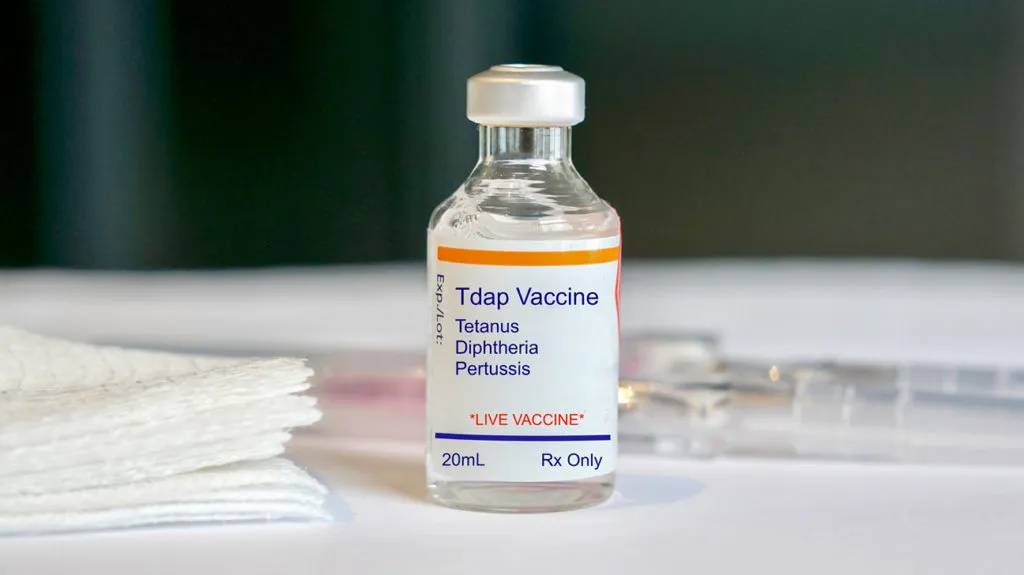Tetanus, also known as lockjaw, is a serious bacterial infection that affects the nervous system. It is caused by a bacterium called Clostridium tetani, which is commonly found in soil, dust, and manure. Tetanus is a life-threatening condition that can cause muscle stiffness and spasms, difficulty swallowing, and even death. However, tetanus can be prevented through vaccination. In this article, we will discuss the different types of tetanus vaccines available, their effectiveness, and the most common vaccine name for tetanus.
Vaccine name for Tetanus
Table of Contents
- What is Tetanus?
- How is Tetanus Spread?
- Symptoms of Tetanus
- Treatment for Tetanus
- How to Prevent Tetanus?
- Tetanus Vaccine: Overview
- Types of Tetanus Vaccines
- Effectiveness of Tetanus Vaccines
- Recommended Tetanus Vaccine Schedule
- Side Effects of Tetanus Vaccines
- How to Get a Tetanus Vaccine?
- Cost of Tetanus Vaccine
- Common Vaccine Name for Tetanus
- Conclusion
- FAQs
What is Tetanus?
Tetanus is a serious bacterial infection caused by Clostridium tetani. The bacteria produce a toxin that affects the nervous system, causing muscle stiffness and spasms. Tetanus can be fatal if left untreated.
How is Tetanus Spread?
Tetanus bacteria are commonly found in soil, dust, and manure. The bacteria can enter the body through a cut or wound, especially if the wound is deep or dirty. Tetanus can also be contracted through puncture wounds, burns, and animal bites.
Symptoms of Tetanus
Symptoms of tetanus usually appear within a week after infection. The initial symptoms may include muscle stiffness and spasms in the jaw, neck, and stomach. Other symptoms may include:
- Difficulty swallowing
- Muscle stiffness and spasms all over the body
- Sweating
- Fever
- Rapid heartbeat
- High blood pressure
Treatment for Tetanus
Tetanus is a medical emergency that requires hospitalization. Treatment may include:
- Tetanus immune globulin injection
- Tetanus vaccine
- Wound care
- Muscle relaxants
- Sedatives
- Mechanical ventilation
How to Prevent Tetanus?
Tetanus can be prevented through vaccination. It is important to clean and treat any cuts or wounds promptly. It is also recommended to wear protective clothing when working outdoors or handling animals.
Tetanus Vaccine: Overview
Tetanus vaccine is a vaccine that protects against tetanus. The vaccine contains a small amount of inactivated tetanus toxin, which stimulates the body’s immune system to produce antibodies against the bacteria.
Types of Tetanus Vaccines
There are three types of tetanus vaccines available:
- DTaP Vaccine: This vaccine is given to children under 7 years of age. It protects against tetanus, diphtheria, and pertussis (whooping cough).
- Tdap Vaccine: This vaccine is given to adolescents and adults. It protects against tetanus, diphtheria, and pertussis.
- Td Vaccine: This vaccine is given to adolescents and adults. It protects against tetanus and diphtheria.
Effectiveness of Tetanus Vaccines
Tetanus vaccines are highly effective in preventing tetanus. According to the Centers for Disease Control and Prevention (CDC), the DTaP vaccine is 95% effective, while the Td and Tdap vaccines are 100% effective in preventing tetanus.
Recommended Tetanus Vaccine Schedule
The CDC recommends
that children receive the DTaP vaccine at 2, 4, and 6 months of age, with booster shots at 15-18 months and 4-6 years of age. Adolescents and adults should receive the Tdap vaccine as a booster shot every 10 years.
Side Effects of Tetanus Vaccines
Like any vaccine, tetanus vaccines can cause side effects. Common side effects include:
- Pain, redness, or swelling at the injection site
- Fever
- Headache
- Fatigue
- Nausea
- Muscle aches
Serious side effects are rare but may include severe allergic reactions.
How to Get a Tetanus Vaccine?
Tetanus vaccines are available at doctor’s offices, clinics, and pharmacies. You can also check with your local health department for vaccine availability.
Cost of Tetanus Vaccine
The cost of tetanus vaccines may vary depending on the location and the type of vaccine. Most health insurance plans cover the cost of vaccines. If you do not have insurance, you can check with your local health department for low-cost or free vaccine programs.
Common Vaccine Name for Tetanus
The most common vaccine name for tetanus is the DTaP vaccine for children and the Td or Tdap vaccine for adolescents and adults.
Conclusion
Tetanus is a serious bacterial infection that can be prevented through vaccination. There are three types of tetanus vaccines available, including the DTaP vaccine for children, the Td vaccine for adolescents and adults, and the Tdap vaccine for adolescents and adults. These vaccines are highly effective in preventing tetanus, with few side effects. It is important to follow the recommended vaccine schedule to ensure maximum protection against tetanus.
FAQs
- Can you get tetanus even if you have been vaccinated?
- While tetanus vaccines are highly effective, no vaccine is 100% effective. It is still possible to get tetanus, especially if you have not received a booster shot in a long time.
- What is the difference between the DTaP, Td, and Tdap vaccines?
- The DTaP vaccine is given to children and protects against tetanus, diphtheria, and pertussis. The Td vaccine is given to adolescents and adults and protects against tetanus and diphtheria. The Tdap vaccine is also given to adolescents and adults and protects against tetanus, diphtheria, and pertussis.
- How often do you need a tetanus vaccine?
- The CDC recommends a booster shot every 10 years for adolescents and adults.
- Can you get tetanus from rusty nails?
- Contrary to popular belief, tetanus is not caused by rusty nails specifically. However, tetanus bacteria are commonly found in soil and can enter the body through a cut or wound, including those caused by rusty nails.
- Can tetanus be cured?
- Tetanus can be treated with hospitalization and supportive care, but there is no cure for the infection. Prevention through vaccination is the best way to avoid tetanus.







